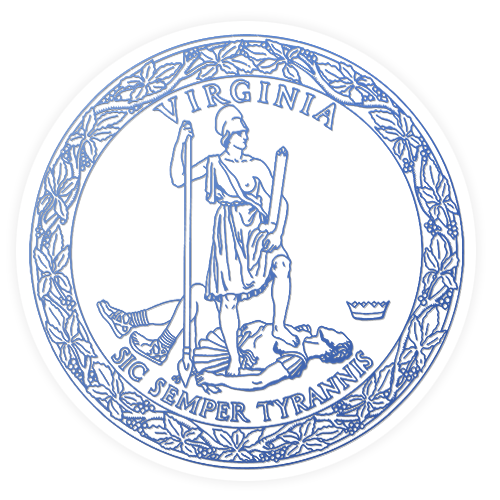
RICHMOND—Governor Ralph Northam today announced that students in 16 Virginia school divisions will be able to increase their understanding of African American history by participating in a new high school-level elective course this academic year.
“Black history is American history, but for too long, the story we have told was insufficient and inadequate,” said Governor Northam. “The introduction of this groundbreaking course is a first step toward our shared goal of ensuring all Virginia students have a fuller, more accurate understanding of our history, and can draw important connections from those past events to our present day.”
On August 24, 2019, Governor Northam directed the Virginia Department of Education (VDOE) to collaborate with Virtual Virginia, WHRO Public Media, and committees of history teachers, historians, and history professors to develop a new African American history course for high school students. Now complete, the full-credit course surveys African American history from precolonial Africa through today. It introduces students to key concepts in African American history, from early beginnings in Africa through the transatlantic slave trade, the Civil War, Emancipation, Reconstruction, the Civil Rights era and to the present. Students will learn about African American voices, including many not traditionally highlighted, and their contributions to the story of Virginia and America.
The 16 school divisions offering the course this year include:
The course will challenge students to explore primary and secondary sources documenting the African American experience. The content includes opportunities for students to develop the skills and attributes known as Virginia’s Five C’s (critical thinking, creativity, collaboration, communication, and citizenship) as they connect what they have learned to local history and issues.
Students will be expected to do the following by the end of the course:
The course also includes a capstone project requiring students to conduct independent research on a question or problem of their choosing and to demonstrate a deeper understanding of African American history.
“We can expect young Virginians to understand the enduring impacts of systemic racism only when they fully understand both the oppression experienced by African Americans and their significant contributions to STEM, the arts, education, law, and advocacy,” said Secretary of Education Atif Qarni. “As a history teacher, I know that this course is long overdue and is a first step toward telling a more inclusive story about the past and how it has shaped the present.”
VDOE curriculum specialists developed a curriculum map for the course and provided suggested content for extended exploration. WHRO then designed the online version of the course using content developers and reviewers selected by VDOE.
“WHRO is proud to have partnered with the Commonwealth to produce this historic and significant course,” said President and CEO of WHRO Public Media Bert Schmidt. “We have been supporting education since 1961 by delivering online, new, and on-air services. The African American history course is a welcome and important addition to our educational offerings.”
Members of Governor Northam’s Commission on African-American History Education in the Commonwealth provided comments and guidance during the development process. Commission members from Norfolk State University, Old Dominion University, University of Richmond, and Virginia Commonwealth University assisted with in-depth reviews of proposed content.
In July, Superintendent of Public Instruction Dr. James Lane notified school divisions of the opportunity to present the new elective during the 2020-2021 academic year. Some divisions will begin instruction this fall, while others following block schedules will present the course during the spring semester.
“I want to thank the division superintendents and teachers who stepped forward and volunteered to be part of this watershed moment in the history of public education in our state,” said Dr. Lane. “I also want to thank all of the educators around the Commonwealth who participated in the development of this course for their dedication to historical accuracy and equipping young Virginians with the comprehensive and accurate story of our past.”
The teachers presenting the course will receive professional development and support throughout the year. The training will focus on building content capacity, developing a deeper knowledge of African American history, strengthening culturally responsive instructional practices, and the use of anti-biased/anti-racist education practices. Educators will also collaborate in the development of resources and materials for future use as the course expands to additional school divisions.
# # #